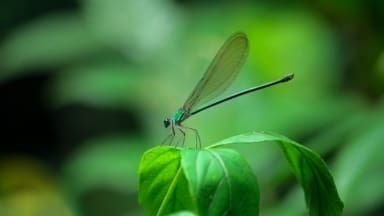
Published on bioRxiv, ‘Vegetation density is the main driver of insect species richness and diversity in small private urban front gardens‘ by Joeri Morpurgo, Margot Huurdeman, J. Gerard B. Oostermeijer and Roy P. Remme, researchers revealed that biodiversity is boosted by the number and the variety of plants, rather than their origin – native or not.
In 2019, the researchers from the University of Leiden, surveyed 65 urban front gardens across Amsterdam and Den Haag, sized under the 10m2. The new research suggests that urban green spaces, no matter how small, can provide meaningful habitats for insects. However, it was plant coverage and richness that proved the strongest predictors for insect biodiversity and species richness, not native vs. exotic plants or garden size. The research looked into; number of insects, number of different species, plant origin (native/non-native) and the area covered by plants.
The Plants for Bugs research, conducted at RHS Wisley, revealed similar results – the more plants, the more invertebrates. “Any planting in a garden is better than none for invertebrates and diversity of plant origin in a garden is a strength, not a weakness” explained Andrew Salisbury, RHS principal entomologist.
To strengthen urban insect biodiversity, the researchers advise to maximising coverage and richness of vegetation, potentially even using exotic species to fill in the gaps where native plant species cannot survive. Similarly, the RHS advised that the best strategy for gardeners looking to support pollinating insects in gardens, is to plant a mix of flowering plants from different countries and regions.
Based on the results, the researchers added that an extensive network of small gardens with high vegetation density may prove as valuable as a single large urban green space such as a city park. They recommend that policymakers and practitioners focus on promoting non-destructive gardening practices, aiming to increase the density and richness of vegetation with urban gardens, in order to support and strengthen insect communities.

